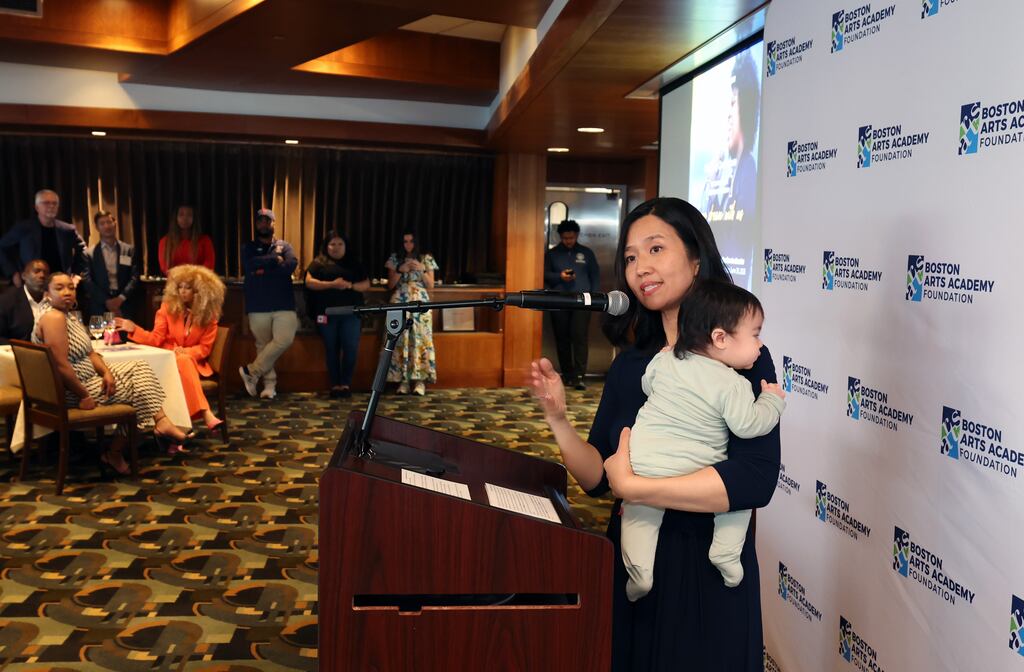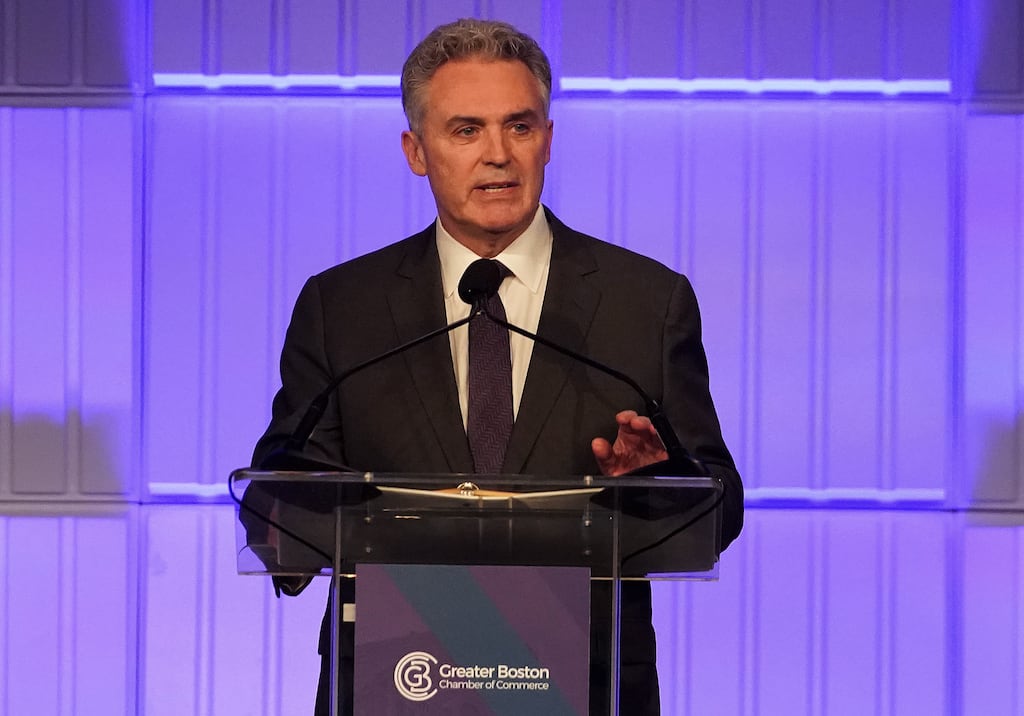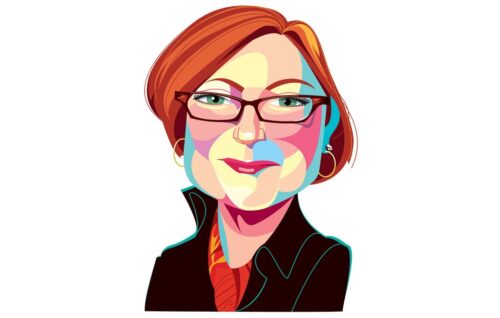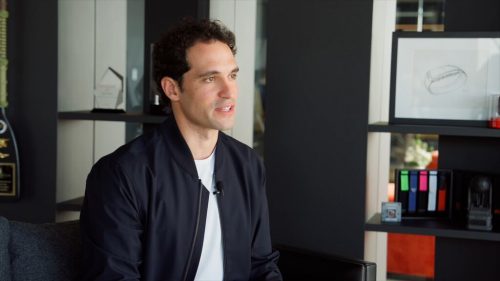Trillium cofounders JC Tetreault and Esther Tetreault hadn’t attended the Craft Brewers Conference in years, after listening to speakers offer advice that seemed contrary to how they chose to run their brewery.
Imagine their surprise, then, when the Brewers Association invited them to deliver the keynote address at the annual confab. The husband and wife told their story to nearly 3,000 attendees at the annual CBC conference last week, in Indianapolis. The title of their speech, appropriately enough: “Maybe You’re Not Doing It Wrong.”
Everyone attending knows the industry is at an inflection point, with brewery closings outpacing openings in the United States last year for the first time since 2005 and overall craft beer production falling 4 percent. As an industry retrenches, the need for unconventional thinking rises.
“What we wanted to share is there’s no right way [for] success,” Esther Tetreault said in an interview.
In the Tetreaults’ case, they avoided selling through a distributor to package stores — an unconventional choice that helped insulate the business during the current consolidation among wholesalers. They have also branched out by opening a distillery as well as full-service restaurants in Fort Point and Canton.
They went back and forth in front of the crowd, going over some of the challenges they faced since launching Trillium in 2013. They said they refused to accept money from outside investors to maintain control of the business, which now employs about 300 people — regardless of how tight the finances got in those early years.
“We never wanted to have to compromise based on somebody else’s conflicting goals or values,” Esther Tetreault said.
They recounted how they struggled to open a restaurant in Fort Point, amid the neighborhood’s real estate boom. One potential landlord tried to exert more control than they wanted, including over specific menu items. They decided to walk away from the lease and wondered if they were giving up on their dream of a Boston location. Fortunately, another landlord (Invesco Real Estate and Crosspoint Associates) saw their potential and offered them a lease soon afterward, for their current Thomson Place spot.
Tetreault pointed to several key factors to their success: a clear vision of what they are working toward, a set of values to follow, and a clear-eyed understanding of how sustainable the business is for the long haul.
Ann Obenchain of the Brewers Association said the speech resonated with many attendees — particularly those who found their struggles relatable, such as the health scare they faced in 2021 when JC Tetreault suffered a stroke.
“Their story is exactly what our brewers needed to hear,” Obenchain said. “They’ve been innovating and trying new things since they opened. They had a great story, and people really enjoyed it.”
Changes at the top for two big banks

A few big C-suite changes are underway at New England’s two largest banks, State Street Corp. and Citizens Financial Group.
State Street announced that it has recruited John Woods, the chief financial officer at Providence-based Citizens, to be its next CFO, starting in August. He succeeds interim CFO Mark Keating, who temporarily took over after Eric Aboaf left in February for S&P Global. Woods, who has nearly four decades of experience in the financial services industry, will be based at the State Street headquarters in Boston and report to chief executive Ron O’Hanley.
Citizens, meanwhile, announced the promotion of Brendan Coughlin, currently the head of consumer, private banking, and wealth operations, to be president, making him a clear second-in-command to chief executive Bruce Van Saun. Coughlin, who has been at Citizens for 20 years, will remain at the bank’s Westwood office.

Citizens said the bank has launched an internal and external search to find a successor for Woods. A spokesperson for Citizens said Coughlin’s promotion was unrelated to the departure and was instead aimed at recognizing Coughlin’s “track record of strong leadership and execution against some of the bank’s most important growth initiatives.”
Raising funds for kids at Fenway

Mark Lev told the crowd gathered last week at Fenway Park‘s Dell Technologies Club that the Boston Arts Academy Foundation was only around $1 million away from reaching its $35 million fund-raising goal.
Good thing for Lev and the foundation’s other board members that they just landed a big anonymous donation: $1 million outright, to seed a scholarship fund in foundation chief executive Denella Clark‘s name, and up to another $1 million if the foundation can match it through other gifts.
Mayor Michelle Wu announced the donation at the event, billed as a “preclosing celebration” to wrap up the six-year, $35 million fund-raising effort.
The foundation raises funds for the Boston Arts Academy, the visual and performing arts-focused public high school, located across the street from Fenway Park. (Lev is an executive at Fenway Sports Group, whose principal owner is Boston Globe publisher John Henry.)
“We need leaders who love and practice the arts,” Wu said. “We need leaders who recognize the power and the importance of beauty, empathy and human connection. … These are the kinds of leaders that the BAA educates, supports, and shares with the whole world.”
Two days later, another prominent nonprofit that helps Boston kids raked in some bucks at Fenway. The BASE raised $650,000 for its sports-based programming at the annual gala, which was held a day after the nonprofit “rededicated” its Roxbury facility as the Yawkey Urban Sports Complex, Home of The BASE (reflecting a $1.5 million gift from the Yawkey Foundation that helped enable the nonprofit to buy its Shirley Street home). Among those on hand at the gala: NCAA president Charlie Baker, Red Sox president Sam Kennedy, Fidelity Investments executive Pam Everhart, and Westfield Capital managing partner John Montgomery.
Lieutenant Governor Kim Driscoll spoke at the rededication. The speech happened to echo some of Wu’s comments about the benefits of arts education, but Driscoll focused on athletics instead.
“The skills that you learn in a team help you your whole life,” Driscoll said. “Every single kid in our community deserves access to that opportunity.”
Fighting back against research cuts

If the Greater Boston Chamber of Commerce hopes to head off drastic federal cuts to research programs, it will need red-state allies to pull it off.
That’s why the Boston chamber helped revive what’s known as the Business for Federal Research Funding Coalition, a loosely knit consortium of chambers across the country.
The group began in 2017 amid threats to federal health research funding at that time. Boston chamber chief executive Jim Rooney said the coalition sent delegations to Washington several times to meet with staffers on Capitol Hill and the first Trump administration — and was about to return to D.C. for another “fly in” when the pandemic hit in 2020, at which point momentum fizzled. The federal funding cuts under Trump 2.0 prompted its revival.
Rooney and his counterparts have looped in chambers from cities with similar liberal politics. But the key, he said, will be the chambers that hail from deeply Republican areas, given the GOP‘s control of the White House and Congress.
“Massachusetts, California, and New York, we can talk to each other, but it’s important that red states are equally enthusiastic about the issue and the effort that’s necessary to support research funding,” Rooney said. “It’s critical that it be bipartisan.”
Toward that end, the coalition includes the likes of the Huntsville/Madison County Chamber of Commerce (from Alabama) and the Orlando Economic Partnership (Florida). So far, more than 50 chambers and similar business groups have signed on.
The first Massachusetts chambers to join Rooney’s group include the Worcester Regional Chamber of Commerce and the Charles River Regional Chamber.
“This issue matters to us because we have many life science companies in our region and because the health and well-being of everyone everywhere depends on this research,” said Charles River chamber president Greg Reibman, who joined at Rooney’s request. “It’s hard for businesses in blue states to be heard on this issue. By being part of a coalition from across the nation, we hope our concerns will transcend the partisan divide.”
Matthew Berlin balances law and music careers with new album releaseNew HBR editor in chief Amy Bernstein looks to grow the publication in AI ageTop AstraZeneca exec sees more growth for drug giant in Greater Boston




Comment count: